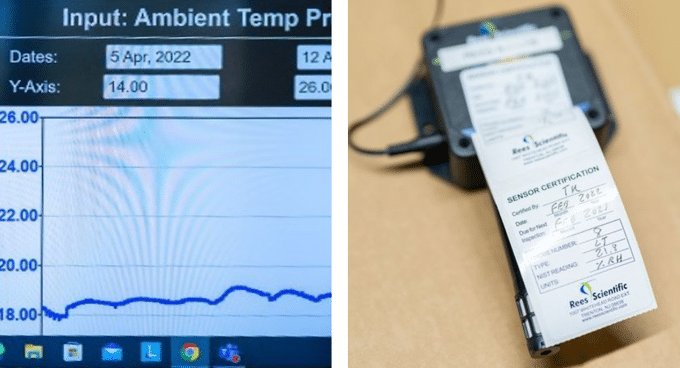Not all biorepositories are created equal. Here’s what to seek out in yours.
Careful vetting of a prospective biostorage partner is critical. After all, failure to consistently meet biosamples’ exact storage, handling, and transport conditions can cost your bioinventory (and larger research efforts) dearly.
Which begs the million-dollar question: How can you determine whether a biorepository is up to snuff?
Any FDA-abiding biostorage facility will offer a complimentary, in-depth audit of its processes and documented procedures. Some, like GenVault, can even provide audits remotely.
However, an audit is only as good as your ability to request critical information and identify possible omissions. When performing an audit, look for the following:
The Essentials

Here’s a basic checklist for off-site storage; details on all of the following should be covered in any site audit:
- Standard Operating Procedures (SOPs)
- Good Laboratory Practices (GLP)
- Current Good Management Practices (cGMP)
- Good Practice Guidelines (GxP)
- ISBER compliance – validated cold storage equipment, temperature mapping, alarms, backup generators
- Good Clinical Practice (GCP)
- Quality Management System (QMS) developed against the ISO 9001; 2015 standard. This will include business ethics, business development, regulatory authority requirements, organization, management, personnel, quality objectives, document control, and quality assurance responsibilities, audits, and inspections.
- Regulatory registrations
- Client material traceability and management
But a top-notch biorepository’s audit won’t end here. Look for the following, too. If you don’t see it, ask for it:
Quality-Focused Experience
Many biorepositories’ operations teams lack the quality- and regulatory-focused experience essential to biosample handling and compliance. Ask for details about upper management’s professional backgrounds. Keep an eye out for quality and regulatory experience among those resumes – roles like QC Technician, QC Inspector, QA Auditor, QA Manager, and QA Director.
How Are Nonconformances Handled?
All biorepository audits outline standard operating procedures (SOPs), including specifics on how nonconformances are identified, reported, and resolved. However, a biorepository’s response to nonconformances offers a much clearer sense of its responsiveness, resolution methods, and continuous improvement program. These characteristics distinguish average biorepositories from superior ones.
When performing an audit, ask to see the biorepository’s CAPA procedures. Short for Corrective Action and Preventative Action, CAPA procedures determine, track the progress of, and assess the effectiveness of actions designed to address potential or existing nonconformance. The information provided should describe how the biorepository assesses the risk of a nonconformance to determine what type of actions are required. Three tiers of action – Immediate Action, Corrective Action and Preventive Actions – should be defined in procedures. Failure to provide this degree of detail is a red flag, indicating the facility potentially does not fully understand these actions, which can lead to overuse or underuse of CAPA, causing inefficiency and poor metrics.
Facility Design and Security
Biorepository audits don’t necessarily cover details about the facility itself – but should. Ask for information about security and surveillance as well as building features. Does the facility have reinforced walls and floors that protect against severe weather conditions or theft? Also seek out information about different security access levels for employees versus visitors. These ensure that only trained and approved employees can enter secure areas.
Transport Protocol
There’s always a chance that your biorepository will need to move biosamples from point A to point B – hence the importance of examining transport protocol. Look for climate control and GPS features within transport vehicles as well as mention of chain of customer procedures and documentation.
GenVault prides itself on satisfying the above standards and more – in audits, but more importantly, everyday in our state-of-the-art southern New Jersey facility.
Interested in a complimentary GenVault audit?
Contact a GenVault Quality Assurance representative today.
